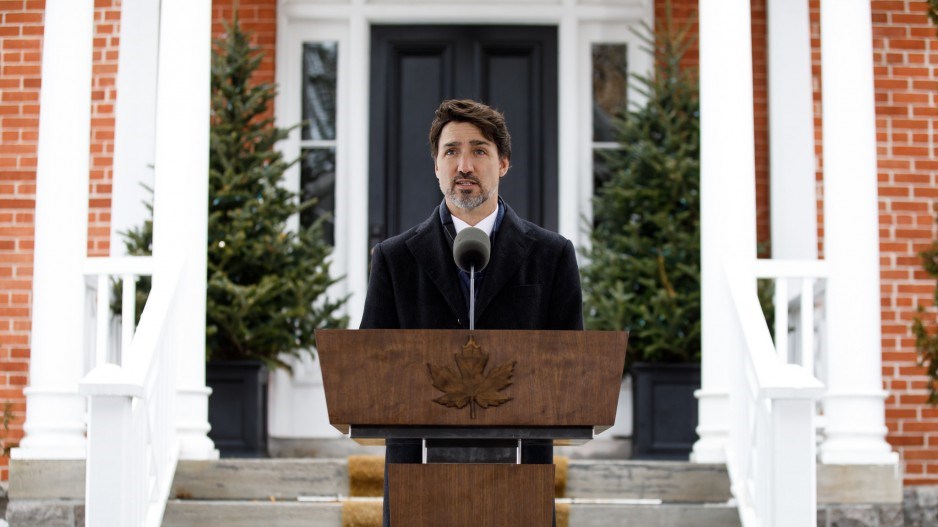The federal government is earmarking $350 million for the country’s vulnerable populations as they deal with the impacts of the COVID-19 pandemic.
Prime Minister Justin Trudeau said Tuesday (April 21) a portion of the new Emergency Community Support Fund will go to smaller community-based organizations but most of the $350 million will be directed to larger national organizations that can quickly deploy the funding.
The prime minister pointed to organizations such as United Way, Community Foundations of Canada and the Red Cross Canada as soon-to-be recipients of the funding.
The new funding will go towards training volunteers, and programs that will boost home deliveries for seniors, helping vulnerable youth access their COVID-19 benefits and driving people with disabilities to appointments.
Trudeau also announced that applications for the country’s 75 per cent wage subsidy will open April 27, but he could not provide an exact timeline for when the money will be available to applicants.
The prime minister said he hopes that the subsidies will be paid out shortly after applications are filed, adding Treasury Board president Jean-Yves Duclos would have more to share later in the day.
Trudeau suggested companies facing imminent capital issues tap into credit programs that have recently launched in the wake of the pandemic.
The $25 billion Canada Emergency Business Account allows banks to offer $40,000 loans guaranteed by government to eligible businesses that will come interest-free for the first year. Up to $10,000 of the loan will be forgivable under certain conditions.
The wage subsidy, meanwhile, covers the first 75 per cent of an employee’s salary up to the first $58,700.
The subsidy program is open to companies that can demonstrate a 15 per cent revenue decline in March compared with a year earlier, or else 30 per cent annual revenue declines April or May.
Trudeau, meanwhile, did not signal when additional relief might be on the way for Canada’s oil sector coming the day after North American crude prices fell into the negative territory for the first time ever.
Last week the federal government announced a $1.7-billion investment to clean up orphaned oil wells that could maintain 5,200 jobs in Alberta.
Trudeau said on Tuesday the Department of Finance would continue to engage with provinces hit hard by declines in oil.
He also told Canadians the country’s food supply chain was not at risk following the planned temporary closure of the Cargill Ltd. meat-packing plant in High River, Alta.
At least 360 cases of COVID-19 in that province are tied to an outbreak at the plant.
The prime minister said meat prices might go up as a result but he does not anticipate a shortage of meat.
Experts and representatives from B.C.’s agricultural sector have also stated the country’s food supply chain is not at risk in the wake of the pandemic paralyzing much of the global economy.
At the top of Trudeau’s daily media briefing outside his home in Ottawa, the prime minister once more acknowledged the mass shooting that unfolded in Nova Scotia over the weekend.
“I want to again extend my most sincere condolences to the families and friends of the victims of the terrible Nova Scotia attacks,” he said, adding he’s spoken to wounded RCMP Const. Chad Morrison and the family of murdered RCMP Const. Heidi Stevenson since Monday.
“On behalf of all Canadians, I thank them for their service and their sacrifice.”



